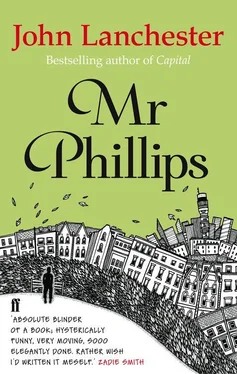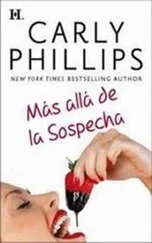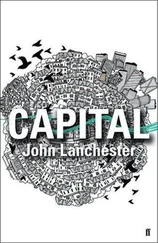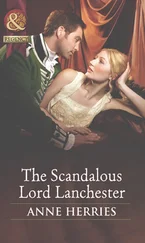In the old days one of the London activities Mr Phillips would probably have not done was go and look at the inhabitants of Bedlam on a Sunday afternoon. He knew about this because the first time he had been to the Tate a man with a posh voice was leading a party around and they had stood in front of The Fairy Feller’s Master Stroke while Mr Phillips hung on the edge of earshot. The man who painted it had killed his father with an axe. He was called Richard Dadd, which was quite funny. He spent the rest of his life in the main loony bin, which for some reason was called Bethlehem (hence Bedlam). Mad Dadd killed his bad dad.
‘The elements of dementia in Dadd’s vision’, said the posh man, ‘speak for themselves.’ Every time he sees this picture Mr Phillips wonders what that meant. In his view either everything spoke for itself or nothing did. But the painting is small and very energetic and full of elves and goblins and things. Perhaps Dadd had thought he was the fairy feller himself, when he brought the axe down on his father’s head? It wasn’t the sort of thing you could do if you were aware of what you were doing. Eight out of ten, thinks Mr Phillips.
Mr Phillips stands in front of a double portrait by Stanley Spencer. It is a picture of the artist and his wife lying side by side with no clothes on in a room that looks untidy and probably cold. The woman has red hair and one of those cross redhead’s faces. Her breasts have curious tinges of green in them. If that was what naked women usually looked like pornography would never have caught on. The man looks like a swot but also randy and quite nice — you are on his side. At the foot of the painting lies a strangely expressive leg of mutton (Mr Phillips’s favourite meat) dressed for the oven.
Spencer has painted his own penis with lavish and loving care. It is quite big, too. Mr Phillips thinks about this for a moment. If you looked down at it it was supposed to be foreshortened, but of course you could always hold it out in front of you and/or use a ruler. Or you could position yourself in front of a mirror which is perhaps what Sir Stanley had done. If the mirror was leaning backwards slightly so that you could look down on it, and it was resting on the floor or at least below waist height, then it would certainly make it look bigger. That was elementary perspective. Plus it was towards the front of the picture and made to look bigger that way too. Of course if you were going to paint your own cock you would take steps to make it show to advantage. It stood to reason. Nine out of ten, Mr Phillips is thinking, as a woman’s voice behind him says,
‘Yes yes yes yes yes yes yes.’
Mr Phillips turns around. A woman in a red coat and matching but very eccentric sort-of-beret is looking at the painting and nodding her head. One or two other people shift to other parts of the room as if, like dogs reacting to an ultrasonic whistle, they are responding to the way the woman’s madness is broadcasting on an extra-sensory frequency. Before Mr Phillips can look away she makes eye contact.
‘They didn’t used to do it, you know. It wasn’t that he couldn’t manage it. She wouldn’t let him.’
‘Do what?’
‘It — you know. Sex. He was a Christian, he was horny as a toad, and they never did it. You can see it in the picture if you look closely enough.’
Mr Phillips looks at the picture again. He has to admit that he can’t see it, unless it is in the fact that you wouldn’t bother painting yourself about-to-do-it or just-having-done-it when you could use the same energy to do it instead. Perhaps that is why double nude self-portraits are rare. The woman comes up beside Mr Phillips and says:
‘Brrrrrrr.’ Then, turning to him with a surprisingly sweet, sane smile she says, ‘It’s such a cold picture.’
Mr Phillips smiles politely and noncommittally back. He moves towards the Clore gallery where the Turners hang and then, like a man shaking off a tail in a thriller, dodges left towards British Surrealism 1900–1966. The woman unembarrassedly doubles back after him. He realizes that he has been adopted.
‘I’ve not seen you here before,’ she says as they stand in front of a John Craxton painting which features multicoloured cubist goats. ‘You’re not one of the regulars.’
‘Would you expect to know me if I was a regular?’ asks Mr Phillips.
‘Heavens yes,’ says the woman. ‘I come here every day. Mainly I come to heckle the tour guides. They talk the most fearful tripe and need much correcting. I used to pick them up on more or less everything they said but now I wait for errors of fact before I pounce. I think it helps them keep on their toes. Then once I’ve established a bridgehead I broaden out into more general interpretative points. I like to think that my perspective is broadly feminist though also unmistakably personal. And then sometimes, not often but every now and then, I like to spout any old mad rubbish just to see if they notice the difference and you know the shocking thing is they never seem to.’
‘Yes, that is disturbing’, says Mr Phillips.
‘This building used to be a prison, you know,’ the woman goes on as they walk further into the Surrealism room. ‘That’s why there are so few doors. You want to stop people getting in and out too easily. Just as you can’t walk in and out of a prison so you can’t walk in and out of an art gallery. Do you ever wonder why, of all the epochs of the world, now should be the most populous? Why so many souls should have chosen now of all times to be born?’
‘No.’
‘Nor do I. It seems perfectly obvious to me.’
They stopped as if by mutual consent in front of a painting of a man eating something, like a Dalí only even worse. Four out of ten.
‘It ought really to be like it was in the war,’ says the woman. ‘The National Gallery was sent into hiding and only one picture was taken out and put on show at any one time. The longing for art! The concentration, the hunger, with which people yearned for it! A great city should have no more than one picture on display. Let it change once a week, once a month. We would recapture our seriousness! The jewel in our crown!’
‘Does it matter?’ asks Mr Phillips.
‘Heavens yes. Why do you think all these people are here? What sort of behaviour do you think you are observing?’
Mr Phillips is thinking about that in a desultory way when with a surge of horror he sees, coming into the room from the opposite end, Mrs Palmer, wife to Mr Palmer, a.k.a. Norman the Noxious Neighbour. Mr Phillips can vaguely remember hearing something about an Open University course — it must be to do with that. At the moment she is looking down at a gallery plan but she is only about fifteen feet away and can’t fail to notice Mr Phillips when she looks up. That will lead her to start talking to him, which will make him have to explain what he is doing in the Tate Gallery at eleven o’clock on a Monday morning. She will then go home and ask her husband to guess who she bumped into and Mr Phillips’s quality of life at Wellesley Crescent will take a significant turn for the worse. He abruptly turns and heads back the way he came.
‘Aren’t we a wriggly one!’ says the woman, still at his heels. ‘But I’m not so easily left behind as all that!’
Mr Phillips feels a wave of tremendous fatigue, of a sort he doesn’t remember experiencing since the last time he was in the same building five years before. What is it about looking at pictures that makes you feel so knackered?
‘I think I’ve had enough,’ he says. ‘I don’t have much stamina for this sort of thing.’
‘Quite so. You’re very sensible. It is the emanations of spirit coming off the paintings which is so exhausting. The vibrations they might once have been called. If one thinks of it as spiritual exercise which drains and refreshes in the same way that physical exercise drains and refreshes, does that make it feel any better? No. Of course not.’ Another sweet, sane smile.
Читать дальше




![Unknown - [Carly Phillips] The Bachelor (The Chandler Brothe(Bookos.org) (1)](/books/174132/unknown-carly-phillips-the-bachelor-the-chandle-thumb.webp)







